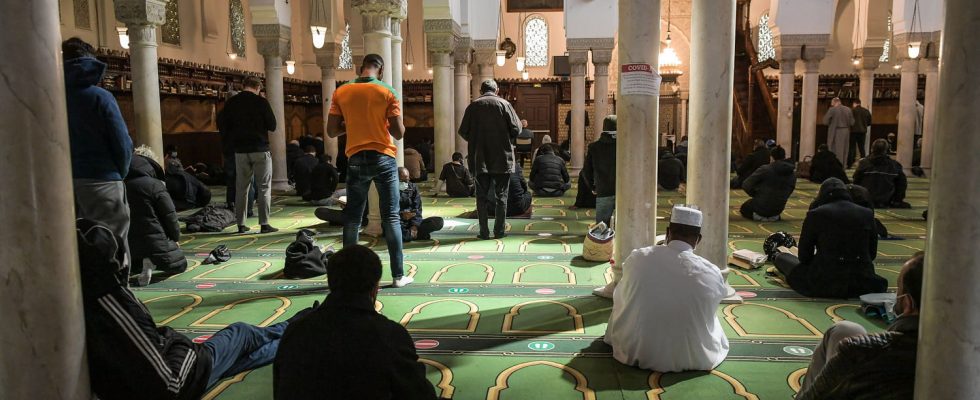The Night of Destiny (Laylat Al-Qadr) is scheduled to take place on the night of April 5, 2024. It is one of the most sacred dates of the year for Muslims. We explain why in our dedicated article.
A few days before Eid el-Fitr, the Night of Destiny (Laylat Al-Qadr) is also an important time in Islam. It is indeed the holiest night in the Muslim calendar, because it would be the day when the archangel Gabriel revealed the Koran to the prophet Mohammed. Its date is not fixed in the Gregorian calendar because the Muslim (Hijri) calendar is different by being based on lunar cycles. Traditionally, the religious leaders of Islam place the night of Destiny on the night of the 27th day of Ramadan. In 2024, it should take place between Friday April 5, 2024 and Saturday April 6, 2024. Please note, this date may be shifted by one day, depending on whether the crescent moon marking the start of the month is taken into account. But what do believers do during this night and what is its significance? Explanations in detail.
The Night of Destiny (or Laylat Al-Qadr) 2024 / 1445 (1445 designating the current year in the Islamic calendar), should correspond to the night of Friday April 5 to Saturday April 6, 2024. However, several dates are actually possible. How to explain it? According to Islam, which sticks to the explanations of the “prophet”, the Night of Destiny takes place during an odd night, and in the last “decade” of the month of Ramadan. Contrary to popular belief, the Night of Destiny does not necessarily take place the day before the 27th day of Ramadan.
Imam Ismaël Tiendrébéogo of the Circle of Islamic Studies, Research and Training (CERFI), explained to the newspaper Wakat Séra how to identify the Night of Destiny: according to him, “the prophet gave elements to help identify this night .He says that on the very day of the night of destiny, there is a coolness, there is no wind, but people feel comfortable. Secondly, there is peace and serenity that we feel. The next day, the sun is there, but its rays are not burning.”
The term can have two meanings. In Arabic, it is written “لَيْلَةُ الْقَدْرِ”. This may refer to destiny as this would be the night when each person’s destiny was determined. Other religious people call it “the night of power” to reflect the grandeur and importance of the revelation of the Koran during this night. The archangel Gabriel is said to have revealed this sacred text to the prophet Muhammad on this date.
The “night of destiny”, or Laylat Al-Qadr is, in the Muslim religion, a very important moment which invites all believers to an important introspection. For Muslims, it is a “blessed” night, symbolizing not only the revelation of the Quran, but also a nighttime journey by Muhammad to the al-Aqsa Mosque in Jerusalem. Tradition says that he experienced ascension there and met, in each heaven, several prophets. According to Hadith No. 239 or “Muslim”, this is where God ordered the Prophet to prescribe prayer to all Muslims.
It is regularly reminded that this night is “better than 1000 months” to reward believers who pray during this moment. For Muslims, it offers those who practice it through sincere meditation, repentance and invocation, to receive forgiveness for their sins. This is why it is considered one of the holiest nights of the year for Muslims. According to the Quran, during this night, Allah hears the prayers of the most pious and devoted believers. The night of destiny would therefore be of inestimable value. Indeed, it is written in the book of Islam: “During it, the Angels and the Spirit descend, by permission of their Lord for all order. It is peace and salvation until the appearance of dawn” (surah Determination, 1-5).
This moment is crucial for Muslims to draw closer to God through prayer, meditation, almsgiving and recitation of the Koran during this date. The night of Destiny is an opportunity for practicing Muslims to perform many actions. The imams are responsible on this day for the so-called “Tarawih” prayer all night and “will end the recitation of the entire Quran with the invocation of divine grace for the effort made by Muslims at the end of their fasting”, specified a press release from the Grand Mosque of Paris during a recent edition of the “sacred” month. Other prayers are recommended during this night to get closer to God: the prayer of Tajajjud to be performed before dawn, that of Salat al-Layl during the night and finally Salat al-Istikhara during the night as well.
The faithful will be invited to “fulfill their canonical duty by paying ‘Zakat el-Fitr’ before the Eid prayer”, namely the obligatory alms for believing Muslims, to be more rewarded for charitable acts.
